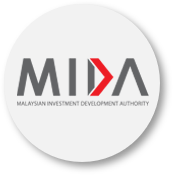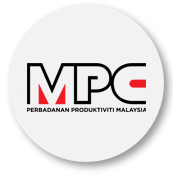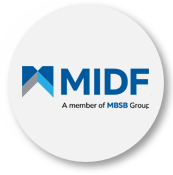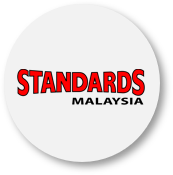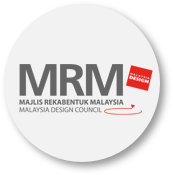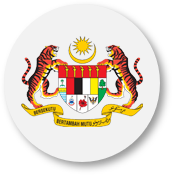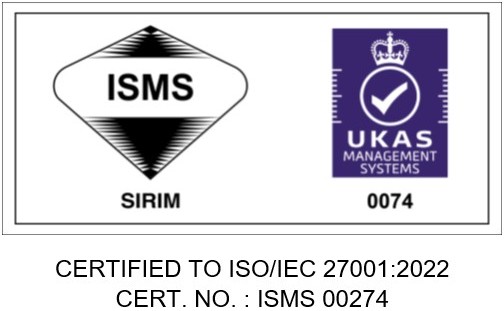1. The 17th Australia-Malaysia Joint Trade Committee (JTC) Meeting was held in Melbourne, Australia, on 13 August 2014, co-chaired by the Hon Andrew Robb MP, Australia’s Minister for Trade and Investment, and the Hon Dato’ Sri Mustapa Mohamed, Malaysia’s Minister of International Trade and Industry.
2. The Ministers stressed the profound effect that the loss of MH370 and MH17 has had on both countries. Australia and Malaysia were united in grief and in common resolve to work together through these tragedies.
3. The Ministers underlined the importance of the commercial relationship to both countries, and welcomed the solid growth in two-way trade and investment. Two-way goods and services trade was valued at AUD$17.9 billion/RM61.9billion in 2013, up from AUD$15.6 billion/RM46.2 billion in 2010. This represented a 14.7 per cent increase over three years.
4. Ministers welcomed the strong growth in two-way investment. In 2013, Australia’s total investment stock in Malaysia was valued at AUD$9.5 billion/RM28.9 billion and the total of Malaysia investment stock in Australia was valued at AUD$16.7 billion/RM50.9 billion. This represented more than a doubling of respective investment stocks over the last three years (nearly 108 per cent).
5. Ministers applauded the determination of businesses in both countries to continue to seek new opportunities to strengthen trade and investment ties. Ministers noted that services were now a key component of the international economy, and recognised the increasing involvement of Australian and Malaysian businesses in global supply chains. The Trade and Investment Mission to Australia currently being led by Minister Mustapa, and the Victorian Super Trade Missions to Malaysia in June of both 2013 and 2014, were recognised as successful bilateral trade and investment promotion events.
6. Ministers welcomed Malaysia’s commitment to participate in the New Colombo Plan (NCP) from 2015, noting the important contribution that people-to-people links make to the bilateral commercial relationship. The Ministers encouraged businesses to participate actively in the internship component of the NCP. Ministers also welcomed the decision by the Australian Institute of Company Directors to hold its annual conference in Kuala Lumpur in May 2015, further strengthening business and people-to-people links between Australia and Malaysia.
7. The Ministers looked forward to celebrating the 60th anniversary of Australia’s diplomatic presence in Malaysia in 2015 as an opportunity to highlight the diverse and enduring ties between the two countries, as well as to build on successes.
REVIEW OF PROGRESS ON DECISIONS FROM THE 16TH JTC MEETING
8. The Ministers reviewed progress on the outcomes from the 16th JTC meeting held in January 2012 in Kuala Lumpur. Ministers welcomed the entry into force of the Malaysia-Australia Free Trade Agreement (MAFTA)on 1 January 2013.
9. The Ministers noted growing collaboration in logistics, green technology, green construction, and energy efficiency. The Ministers welcomed the proposal by the Infrastructure Sustainability Council of Australia to develop and deliver training in Malaysia on its Infrastructure Sustainability Tool in collaboration with the Malaysian Construction Industry Development Board. The Ministers further welcomed the signing on 12 August 2014 of a Memorandum of Understanding on research in solar energy between Malaysian solar energy company HBE Gratings and the University of Western Sydney.
10. Ministers noted the deepening of collaboration on economic reform issues, including participation by the Australian Public Service Commissioner in Malaysia’s International Performance Review Panel for the Economic Transformation Program and Government Transformation Program. Emerging collaboration between the two countries on taxation administration was also welcomed, in particular the sharing of Australia’s experiences in the lead up to Malaysia’s introduction of a goods and services tax in 2015.
PRESENTATION OF AMBC / MABC JOINT STATEMENT
11. The Ministers welcomed the Joint Statement by the Australia-Malaysia Business Council (AMBC) and the Malaysia-Australia Business Council (MABC), which is attached. The Ministers commended the important contribution of both Councils in advancing bilateral trade and investment ties between the two countries, and tasked officials to explore how the structured engagement taking place in the automotive sector could be replicated across other sectors. Ministers agreed to consider such engagement in advance of future JTC meetings.
12. The Ministers expressed appreciation for the dialogue held with Australian and Malaysian businesses at the Government-to-Business Dialogue earlier today and thanked the AMBC for its industry analysis on bilateral trade and investment.
BILATERAL TRADE AND INVESTMENT COOPERATION
13. The Ministers welcomed the entry into force of MAFTA on 1 January 2013, and the benefits it offered to businesses, investors and consumers through the reduction and elimination of tariffs and increased access for service providers. The Ministers also welcomed practical cooperation under MAFTA, including in R&D and auto components, and through the Malaysia-Australia Automotive Industry Dialogue. The Ministers underlined the key role of effective implementation in ensuring that MAFTA continued to provide enhanced business opportunities.
14. Ministers agreed to include MAFTA implementation as a standing agenda item of the JTC. They tasked the FTA Joint Commission to identify specific issues, particularly in the services sector, for consideration at the next JTC.
15. The Ministers welcomed increasing utilisation of the ASEAN-Australia-New Zealand Free Trade Agreement (AANZFTA) and its strong value to businesses in the region. The Ministers looked forward to signing the Protocol to amend the AANZFTA at the ASEAN Economic Ministers – CER Trade Ministers meeting in Myanmar later in August.
16. Ministers welcomed bilateral cooperation in new areas, and looked forward to the successful conclusion of negotiations on a bilateral audio-visual coproduction agreement in the near future. Malaysia suggested further proposals for collaboration, including intellectual property training and franchise development.
17. The Ministers emphasised the complementarity between the two economies. Australia’s strengths in services, and Malaysia’s regional market knowledge and access to regional supply chains made them natural partners in trade and investment. Ministers looked forward to building on the already strong trade relationship, and agreed to focus future bilateral economic policy efforts on advancing two-way trade in services and investment. They asked officials to look at ways of strengthening exchange of data on trade and investment flows.
18. Australia welcomed Malaysian investment in Australia, and encouraged investors to diversify into new areas of investment, especially taking advantage of opportunities in Northern Australia, to advance regional economic integration and connectivity. Ministers noted possible opportunities through closer collaboration in financial services, including Islamic finance.
ADVANCING SERVICES AND INVESTMENT
19. The Ministers recognised that achieving commercially meaningful outcomes in regional trade negotiations would contribute to a stronger trade and investment relationship. Ministers assessed progress of the Trans-Pacific Partnership (TPP) Agreement negotiations and discussed areas where the TPP provided an opportunity to build upon the outcomes achieved in AANZFTA and MAFTA, including in relation to services and investment market access. Australia and Malaysia noted that a high-quality, comprehensive agreement that contributed to greater economic integration in the region could provide greater impetus for further economic growth in both countries.
20. The Ministers discussed developments in the Regional Comprehensive Economic Partnership (RCEP) negotiations ahead of the RCEP Ministerial Meeting to be held in Myanmar later this month. Ministers agreed to work together to ensure that RCEP built on AANZFTA outcomes.
REGIONAL AND MULTILATERAL COOPERATION
21. Australia briefed Malaysia on priorities for the G20 Summit, including the promotion of strong economic growth and employment. Australia briefed Malaysia on the G20 Trade Ministers’ meeting in Sydney in July 2014, including on growth strategies to support the G20 growth target, and on the importance of global value chains, of which Malaysia is a key regional link.
22. The Ministers underlined their commitment to the World Trade Organization (WTO), including the Agreement on Trade Facilitation. The Ministers reiterated their resolve to continue working with Cairns Group members to ensure that agriculture remained central to the multilateral trade agenda. Australia briefed Malaysia on progress in negotiations on the Trade in Services Agreement. Malaysia briefed Australia on its ongoing services sector reforms. Australia welcomed Malaysia’s interest in its tobacco plain packaging measures and Malaysia’s decision to join the WTO dispute settlement proceedings as a third party.
23. The Ministers welcomed close collaboration on a range of Asia‑Pacific Economic Cooperation (APEC) priorities, including connectivity, infrastructure investment, good regulatory practices, and structural reform agendas. Australia noted its hosting of workshops in Kuala Lumpur on APEC’s New Strategy for Structural Reform Support Fund in June 2014, and on higher education in March 2014 and August 2013. The Ministers agreed to continue to advance APEC work on liberalisation in services, structural reform, supply chain efficiency, cross-border education and infrastructure investment.
24. Australia welcomed Malaysia’s chairing of ASEAN/EAS in 2015. Australia looked forward to working with Malaysia on realising the ASEAN Economic Community in 2015, and advancing the ASEAN connectivity agenda. Australia further looked forward to Malaysia’s role in the G20 and RCEP in 2015 in its capacity as ASEAN Chair. Ministers welcomed the 40th anniversary of ASEAN-Australia relations in 2014, and the ASEAN-Australia Leaders’ Summit to be held in Nay Pyi Taw, Myanmar, in November 2014.
CONCLUSION
25. Ministers agreed to aim to hold JTC meetings annually. They stressed the importance of sustaining the momentum of engagement and broadening it to include other relevant agencies, with a view to continuous improvement in the trade and investment environment and identify expanded areas of cooperation.
26. Both sides agreed that Malaysia would host the 18th Meeting of the JTC in 2015.
Last Updated 2015-05-14 12:00:09 by admin2







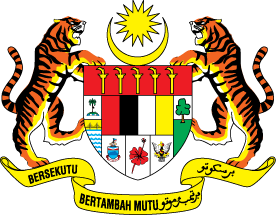





 Home
Home








